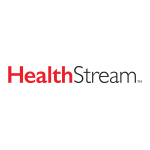Innovative VR-based Program Piloted by Community Health Systems through the HealthStream Resuscitation Innovation Lab

Unique program focuses on leadership capabilities of the clinical team leader in improving resuscitation outcomes, a largely overlooked, critical component of training for code blue events
NASHVILLE, Tenn.–(BUSINESS WIRE)–HealthStream (Nasdaq: HSTM) announced today that CHSPSC, LLC (CHS), an affiliate of Community Health Systems, Inc. (NYSE: CYH), one of the nation’s leading operators of general acute care hospitals, is launching a pilot of a new virtual reality (VR) based education program through the HealthStream Resuscitation Innovation Lab. The pilot will explore the effectiveness of new VR-based training focused on improving an individual’s team leadership capabilities in resuscitation events in clinical environments. As a founding partner in this Lab, CHS’s participation in this pilot will advance knowledge and innovations in resuscitation science for the benefit of their patients and the healthcare industry at-large.
In hospitals, code blue emergencies—signifying cardiac arrests—can occur anywhere in a hospital. In such situations, nurses and physicians quickly form the resuscitation team where life-saving resuscitation efforts are immediately performed. The number of clinicians who comprise the team, their roles, and communication responsibilities are typically determined in real-time as the urgent event unfolds. These decisions, along with necessarily rapid clinical decision-making, are relegated to the clinical leader of the team, making the leadership role critical in determining outcomes. The new, unique VR-based pilot focuses on this critical component of resuscitation training: improving the leadership capabilities of the clinical leader in code blue emergencies.
It is important to note that for optimal impact in improving clinical leadership capabilities, training needs to be realistic. According to the Journal of Medical Internet Research (2019), training via a VR methodology results in better knowledge and skills outcomes of health professionals than training via online or offline education. At CHS, the HealthStream Resuscitation Innovation Lab will be setup with VR headsets for participants to use. The program itself is “room-scale,” which means that a space is needed to allow physical movement, thus replicating real-world movement and making the virtual environment seem more real—as it was developed with the same top game and simulation engines used for commercial entertainment and VR games. Currently, there are three resuscitation patient cases, plus an introductory VR-based tutorial. With the headset on, the participant will be presented with patients in cardiac arrests and will then proceed to lead the virtual clinical team to successfully resuscitate them. During this process, the program guides the participant through a series of questions as they lead the clinical team, improving their team leadership capabilities in the process.
“We believe outstanding resuscitation training is essential—and improving the capabilities of clinical team leaders to coordinate and lead others as effectively as possible in a high-stress clinical situation may prove to be a contributing factor in improving resuscitation outcomes,” said Lynn T. Simon, M.D., President of Clinical Operations and Chief Medical Officer of CHS. “Using a VR-based learning approach for this need is innovative and unique, but also engaging for all members of our clinical workforce.”
The new VR-based education program being piloted at CHS was co-developed and is co-owned by HealthStream and MedStar SiTEL (Simulation Training & Education Lab), an internationally recognized leader in clinical simulation research and innovation. As part of the development process, MedStar SiTEL was able to leverage the experience, expertise, and real-life testing of the new program with healthcare professionals working at MedStar Health. John Yosaitis, M.D., Medical Director, MedStar SiTEL, commented, “Across the U.S., more than 200,000 adult cardiac arrests occur in hospitals and, on average, less than 26 percent survive. I believe that every element that could possibly be improved upon in the resuscitation process should be considered, including effective team dynamics. I believe the VR-based program that CHS will pilot is the first of its kind, offering a unique focus on improving the leadership capabilities of the clinical leader.”
“Through their strong commitment to performance excellence in healthcare delivery, CHS is playing a leading role in advancing science that is focused on improving patient outcomes through their participation in this potentially ground-breaking program,” said Robert A. Frist, Jr., Chief Executive Officer, HealthStream. “Industrywide, we expect VR methodologies to play a larger and larger role in clinical training in the coming years. We are, therefore, excited to be introducing this unique program with MedStar SiTEL and pioneering its use in the pilot with CHS.”
The new VR-based program to improve a clinical leader’s capabilities in resuscitation events (i.e. program being piloted by CHS) is anticipated to be commercially available in the second quarter of 2020.
About HealthStream
HealthStream (Nasdaq: HSTM) is dedicated to improving patient outcomes through the development of healthcare organizations’ greatest asset: their people. Our unified suite of solutions is contracted by healthcare organizations across the U.S. for workforce development, training & learning management, talent management, credentialing, privileging, provider enrollment, performance assessment, and managing simulation-based education programs. Based in Nashville, Tennessee, HealthStream has additional offices in Jericho, New York; Boulder, Colorado; Denver, Colorado; San Diego, California; and Chicago, Illinois. For more information, visit http://www.healthstream.com or call 800-521-0574.
This press release contains forward-looking statements that involve risks and uncertainties regarding HealthStream. Investors are cautioned that such results or events predicted in these statements may differ materially from actual future events or results. This information has been included in reliance on the “safe harbor” provisions of the Private Securities Litigation Reform Act of 1995. Investors are cautioned that such results or events predicted in these statements may differ materially from actual future events or results. These forward-looking statements are based on a variety of assumptions that may not be realized, and which are subject to significant risks and uncertainties, including that the acquisition may not be consummated and that the anticipated financial and strategic benefits of the acquisition may not be realized, as well as risks and uncertainties referenced from time to time in the Company’s filings with the Securities and Exchange Commission.
Contacts
Mollie Condra, Ph.D.
HealthStream
(615)-301-3237
mollie.condra@healthstream.com


